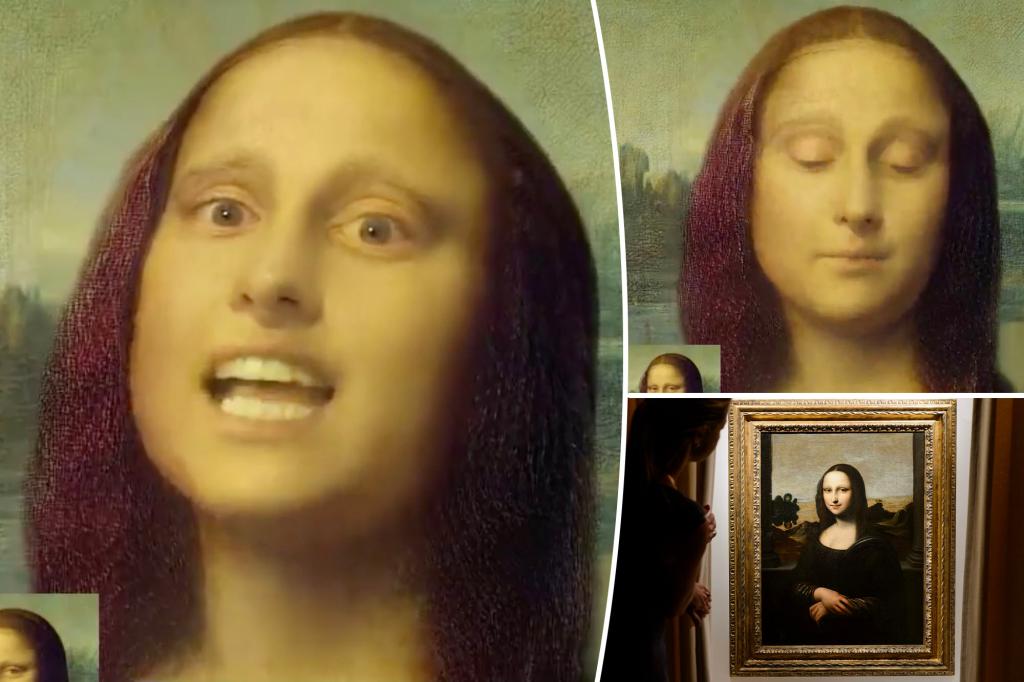Microsoft’s new AI technology, VASA-1, has gained attention for its ability to combine still images and audio clips to generate lifelike videos of talking faces. To showcase this technology, Microsoft released a viral video of the Mona Lisa rapping to “Paparazzi,” which quickly garnered millions of views. People had strong reactions to the video, with some finding it funny and others expressing that it was terrifying and creepy.
The AI technology, VASA-1, has the capability to handle various types of data, including artistic photos, singing audios, and non-English speech. Microsoft explained that the technology can have positive impacts, such as enhancing educational equity, improving accessibility for individuals with communication challenges, and offering companionship or therapeutic support. However, the company also warned that there is a risk of misuse for impersonating humans and emphasized the importance of using the technology responsibly.
Despite the advancements in AI technology, Microsoft stated that they have no plans to release an online demo, API, product, or any additional implementation details until they are certain that the technology will be used responsibly and in accordance with proper regulations. The company aims to ensure that the technology is not used to mislead or deceive individuals, highlighting the importance of ethical considerations in the development and utilization of AI technologies.
The release of the Mona Lisa rapping video sparked strong reactions from viewers, with many expressing a mix of fascination and unease at the lifelike capabilities of VASA-1. Some users found the video amusing, while others found it disturbing and surreal. The video served as a demonstration of the potential of AI to create realistic virtual content that blurs the line between reality and simulation.
With the potential for AI-generated content to revolutionize various industries and applications, Microsoft’s new technology showcases the rapid progress being made in the field of artificial intelligence. By combining audio and visual elements to create lifelike videos, VASA-1 represents a significant advancement in the capabilities of AI systems to generate realistic human-like interactions. Microsoft’s cautionary approach to the release of the technology reflects the company’s commitment to ensuring the responsible use of AI technologies in the future.
As AI technologies continue to evolve and expand their capabilities, it will be important for developers, companies, and policymakers to address ethical concerns and implications. Microsoft’s decision to withhold the release of further details about VASA-1 until they can ensure responsible use underscores the need for thoughtful consideration of the impacts of AI technologies on society. By balancing innovation with ethical considerations, companies like Microsoft are striving to harness the potential of AI for positive impacts while mitigating potential risks and challenges.


